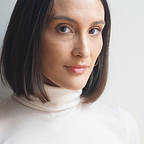The Best Book About Mental Health From 2019
Forge’s pick for the year’s best read on keeping a quiet mind
2019 perfectly encapsulated the disorienting, occasionally dystopian decade it capped off. Amid economic uncertainty, political upheaval, and the looming shadow of climate catastrophe, we searched for answers. We grasped for mentors. And we read books — many, many books. Within the flux of chaos, these books showed us new approaches for our work, our relationships, our minds, and our moods.
Every day this week, we’ll offer you one of our favorite personal development books of the year, as well as a runner-up in each category.
Forge’s favorite book about mental health from 2019:
How to Do Nothing: Resisting the Attention Economy by Jenny Odell
The fourth-century Cynic philosopher Diogenes of Sinope made a point of participating in the rituals of daily life in unexpected ways. He might, say, enter a theater as audience members were leaving, or casually walk backward down the street. As the artist and critic Jenny Odell…
